Conservation News & Highlights
The Center for Plant Conservation’s National Office team and our network of Conservation Partners have been hard at work to advance our shared mission to save plants from extinction.
From CPC hosting our first-ever Native Plant Summit event and The Huntington facilitating an educational cryopreservation workshop, to new conservation-focused publications, our network continues to make meaningful strides to safeguard the rare and endangered plants of North America.
Read on for a round-up of the latest conservation events, news, and highlights.
2023 Native Plant Summit
Last month, CPC was thrilled to present its inaugural summit event, Unleashing the Power of Native Plants: A Resilient Future for Our Planet, which took place in Boston, MA, at the renowned Isabella Stewart Gardner Museum. The summit served as a platform for esteemed experts, professionals, and advocates from related fields to come together and discuss the importance of protecting and conserving native plants and their habitats as well as the pivotal role of plant species in establishing sustainable responses to global environmental crises.
CPC was honored to host distinguished scientists and conservationists from throughout its nationwide network of botanical organizations for a keynote presentation and panel discussion during the summit to share insights into this conservation model. The event’s keynote speaker, Dr. William (Ned) Friedman, Director of the Arnold Arboretum of Harvard University and Professor of Organismic and Evolutionary Biology at Harvard University, was joined by an expert speaker panel including Dr. Emily E.D. Coffey, Vice President of Conservation & Research at Atlanta Botanical Garden; Wesley Knapp, Chief Botanist of NatureServe; and Dr. Lucinda McDade, Executive Director & Judith B. Friend Director of Research at California Botanic Garden.
The lively panel discussion highlighted the critical urgency, challenges, and opportunities in our network’s shared goal to save plants from extinction, with an overarching theme for success: collaboration. By working together and developing partnerships—with fellow conservation organizations, federal agencies, funders, plant enthusiasts, and more—we can amplify our efforts and save more plants than would ever be possible alone. CPC looks forward to hosting future summit events in 2024 as part of our 40th anniversary celebrations.
CPC is grateful to our network of plant conservationists from 74 world-class botanical gardens, arboretums, and other plant-focused organizations that collaboratively work to save the 4,400 most rare and endangered plants of the United States, its territories, and Canada, throughout their native range.
This event was generously sponsored by:
Corient
Garden Club of the Back Bay | Beacon Hill Garden Club | The Garden Club of Brookline | The Garden Club of Buzzards Bay | The Bennington Garden Club | Cambridge Plant & Garden Club | Chestnut Hill Garden Club | Cohasset Garden Club | Garden Club of Dublin | Fox Hill Garden Club | Boston Junior League Garden Club | Little Compton Garden Club | Milton Garden Club | The Garden Club of Mount Desert | Nantucket Garden Club | Noanett Garden Club | North Shore Garden Club of Massachusetts | Piscataqua Garden Club | Worcester Garden Club
-
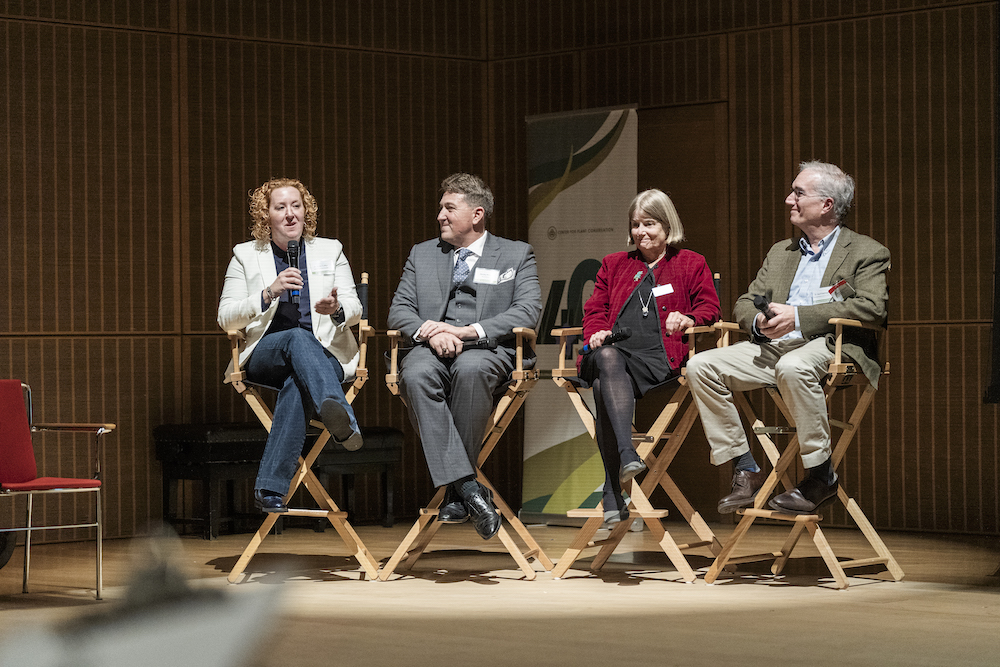
Panelists (left to right)Dr. Emily E.D. Coffey, Wesley Knapp, Dr. Lucinda McDade, and Dr. William (Ned) Boston Friedman at CPC's inaugural Native Plant Summit hosted at the Isabella Stewart Gardner Museum in Boston, MA, in October 2023. -
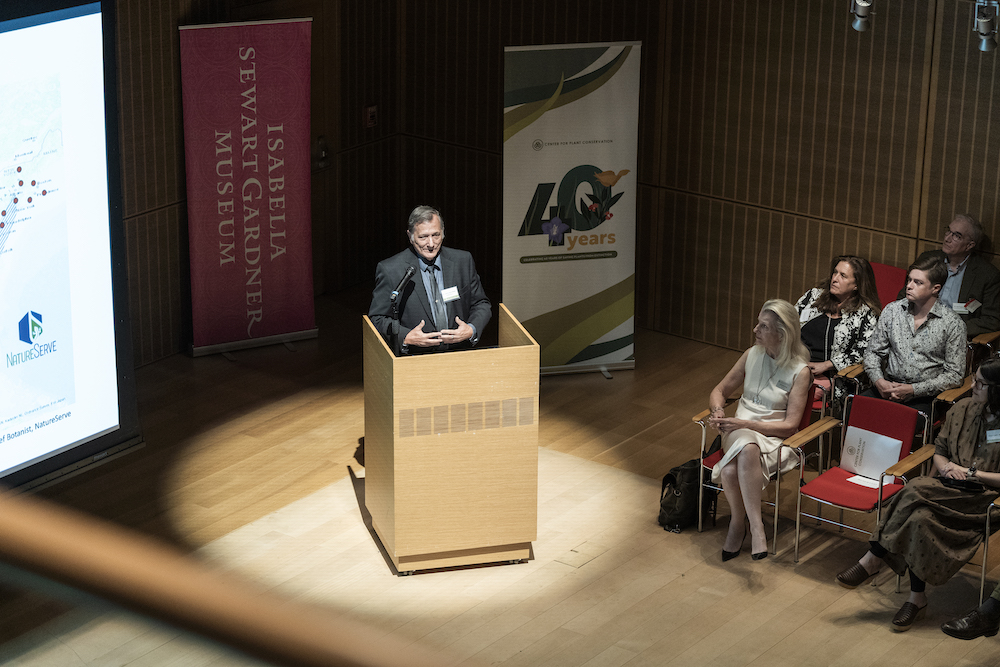
Dr. Carlos L. de la Rosa, CPC President & CEO. -
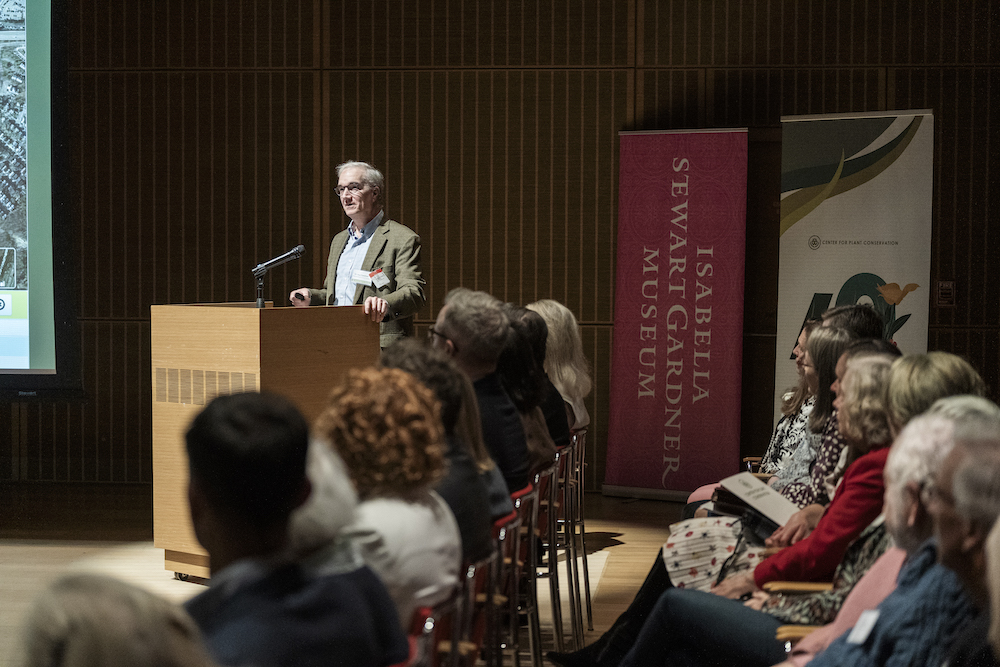
Summit Keynote Speaker Dr. William (Ned) Friedman).
Cryopreservation Workshop at The Huntington
-
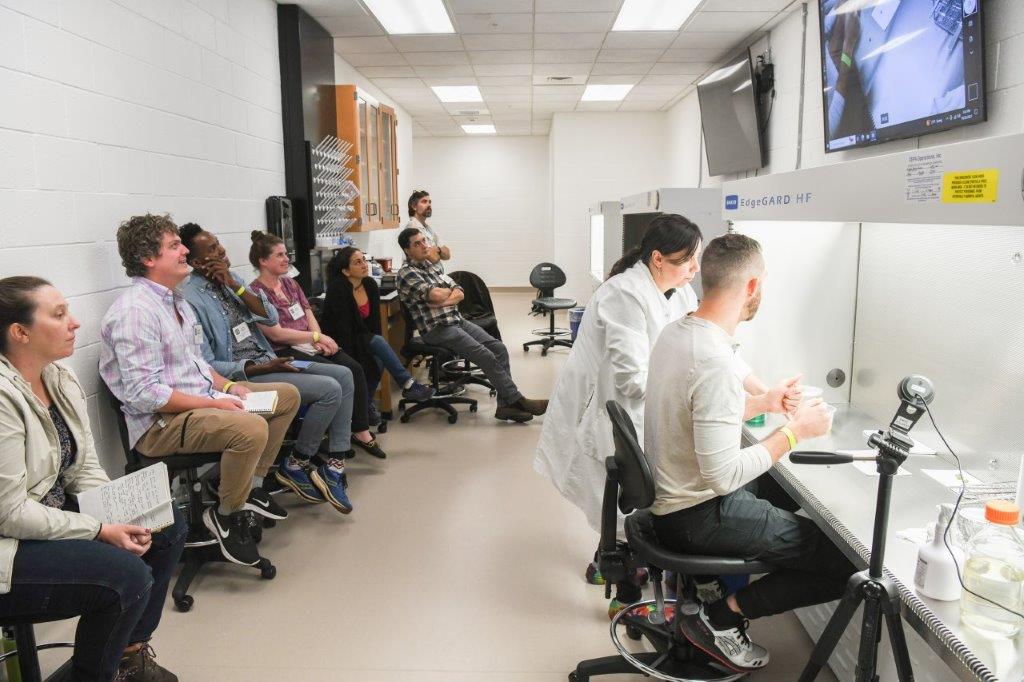
Staff and participants at The Huntington's 2023 cryopreservation workshop. Photo courtesy of The Huntington. -
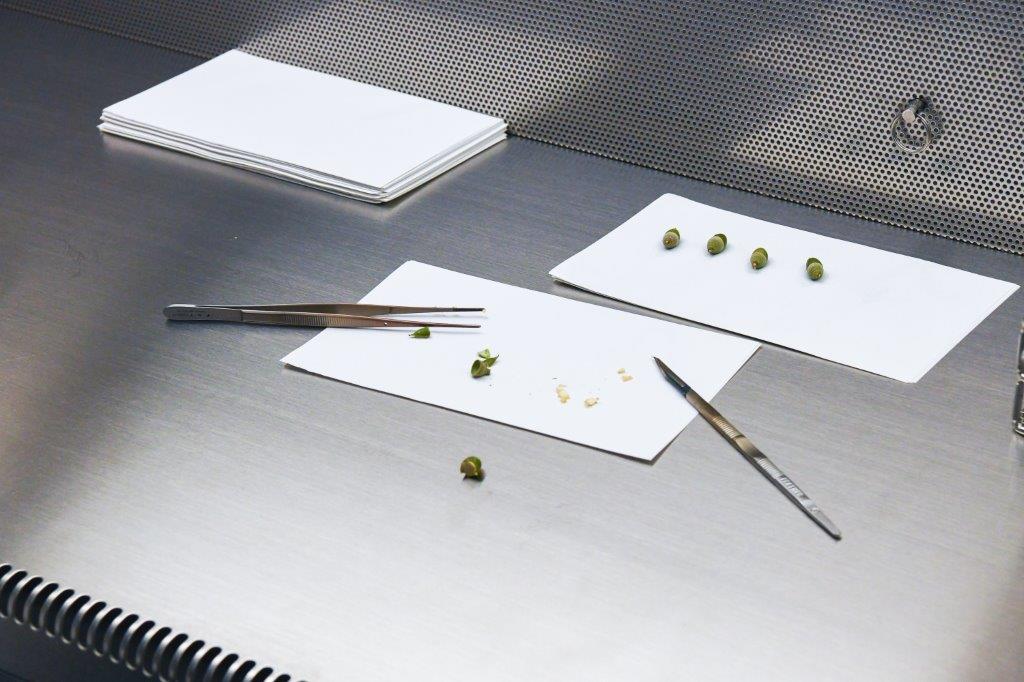
2023 cryopreservation workshop at The Huntington. Photo courtesy of The Huntington. -
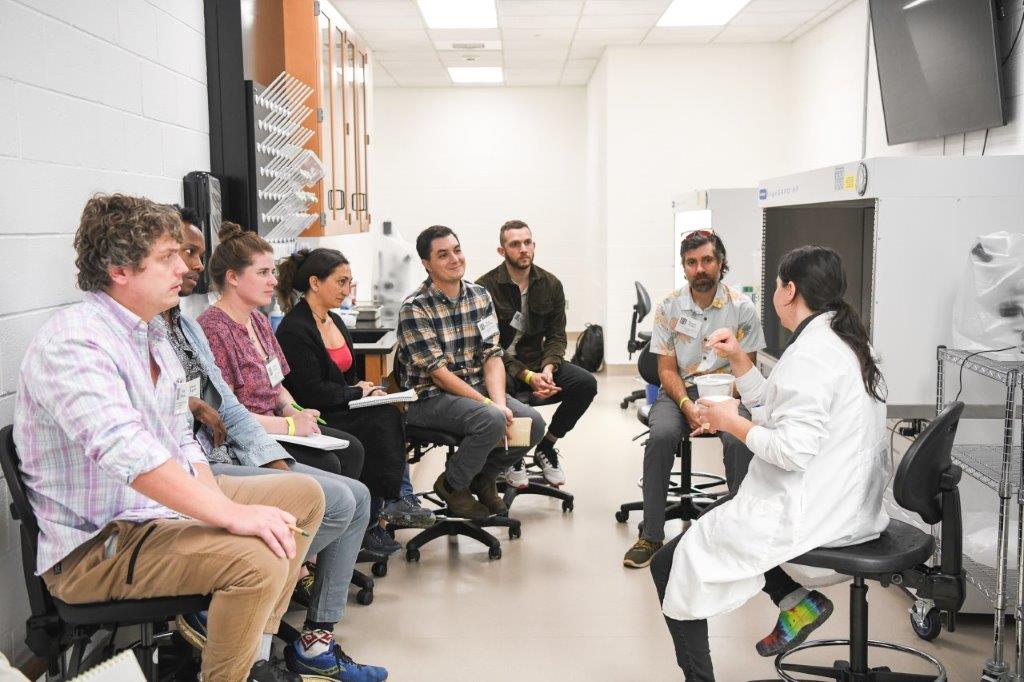
Staff and participants at The Huntington's 2023 cryopreservation workshop. Photo courtesy of The Huntington.
Recent Publications
San Diego Thornmint (Acanthomintha ilicifolia) Populations Differ in Growth and Reproductive Responses to Differential Water Availability: Evidence from a Common Garden Experiment. Plants 2023, 12, 3439.
Heineman, K.D.; Anderson, S.M.; Davitt, J.M.; Lippitt, L.; Endress, B.A.; Horn, C.M.
The Center for Plant Conservation (CPC) collaborated with the San Diego Zoo Wildlife Alliance’s plant conservation team to analyze data from a common garden experiment where plants of the federally threatened San Diego thornmint were subjected to water stress. The study found that plants grown from seeds collected at populations with higher annual rainfall created more seeds, especially under water stress, than plants grown from seed collected at drier locations. The seed production of this species is of particular interest to CPC because San Diego thornmint will be one of two species that receives detailed genomic analysis as part CPC’s new IMLS-funded seed bulking study.
Identifying predictors of translocation success in rare plant species. Conservation Biology, 2023
Joe Bellis, Oyomoare Osazuwa-Peters, Joyce Maschinski, Matthew J. Keir, Elliott W. Parsons, Thomas N. Kaye, Michael Kunz, Jennifer Possley, Eric Menges, Stacy A. Smith, Daniela Roth, Debbie Brewer, William Brumback, James J. Lange, Christal Niederer, Jessica B. Turner-Skoff, Megan Bontrager, Richard Braham, Michelle Coppoletta, Karen D. Holl, Paula Williamson, Timothy Bell, Jayne L. Jonas, Kathryn McEachern, Kathy L. Robertson, Sandra J. Birnbaum, Adam Dattilo, John J. Dollard Jr., Jeremie Fant, Wendy Kishida, Peter Lesica, Steven O. Link, Noel B. Pavlovic, Jackie Poole, Charlotte M. Reemts, Peter Stiling, David D. Taylor, Jonathan H. Titus, Priscilla J. Titus, Edith D. Adkins, Timothy Chambers, Mark W. Paschke, Katherine D. Heineman, Matthew A. Albrecht.
This article emerged from one of the component databases that now makes up the CPC Reintroduction Database, the REDCap database compiled by Matthew Albrecht and Oyomoare Osazuwa-Peters from Missouri Botanical Garden. The work contains important insights about the predictors of translocation success including that founders size (the number of plants planted) and habitat quality strongly influence reintroduction outcomes.